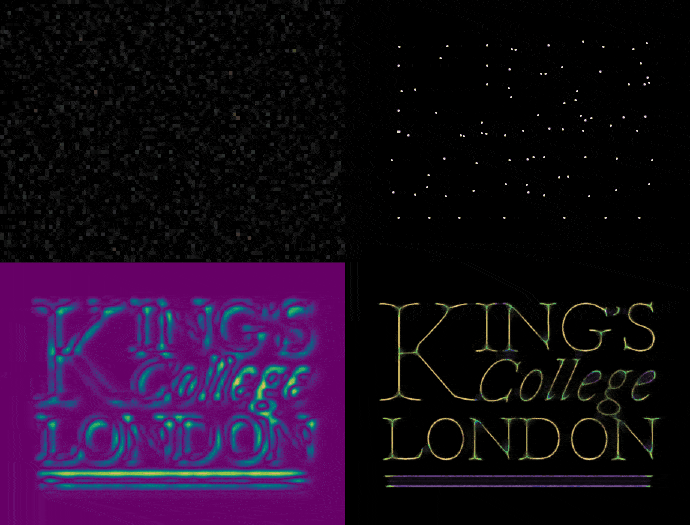Postdoctoral Research Associate – SMLM data assessment at King’s College London
Posted by siân culley, on 8 September 2023
Closing date: 2nd October 2023.
Full time post offered on a fixed-term contract until 31st August 2026.
Salary range: Grade 6, £42,405 – £47,178 per annum, including London Weighting Allowance.
Link to apply: https://www.kcl.ac.uk/jobs/074054-research-associate-department-of-randall-cell-and-molecular-biophysics
Informal enquiries to susan(dot)cox(at)kcl.ac.uk or sian(dot)culley(at)kcl.ac.uk

Job Description
Applications are invited for a postdoctoral research position to work on data assessment for single molecule localization microscopy in the Randall Centre for Cell and Molecular Biophysics within the Faculty of Life Sciences and Medicine at King’s College London. This position is funded by a 3-year grant from the BBSRC Bioinformatics and Biological Resources fund.
Single molecule localization microscopy (SMLM) is a popular super-resolution fluorescence microscopy technique which has become widely used over the last fifteen years. However, producing the final images in this technique is completely dependent on image analysis of raw data, and this process is prone to generating artefacts which are not visually obvious and can lead to misleading results. Detecting these artefacts and determining image features such as spatial resolution is crucial for ensuring that accurate biological conclusions are drawn from SMLM images. In this position, you will be working with the groups of Susan Cox and Siân Culley, two leaders in the field of SMLM data assessment, Nicholas Anthony from the KCL Microscopy Innovation Centre, and a research software engineer to develop new approaches to SMLM data assessment and integrate them into packages which are of wide use to the global microscopy community.
Your work will focus on developing techniques which assess artificial sharpening, intensity linearity, and spatial resolution in SMLM images. This involve optimisation and extension of existing data assessment methods in the field, ensuring that they are robust to different types of datasets and imaging regimes, and development of novel quality control techniques. You should have a science or engineering background, with a PhD in computer science, engineering, physics, chemistry or biological sciences. Experience of a programming language is required, and experience of SMLM data analysis is an advantage.
Key Responsibilities
- Carry out research on the best way to assess super-resolution images produced from SMLM
- Design approaches to convert these methods into software in a way which is useful for those using SMLM for their research
- Work collaboratively with the other researchers working on the project
- Write up the results into papers and present them at conferences
- Plan and troubleshoot own work
- Contribute to collaborative decision making with colleagues in area of research
- Work effectively to specific deliverables and to strict deadlines of this programme
Skills, knowledge, and experience
Essential criteria
- Undergraduate degree in relevant area (sciences, computer science or engineering)
- PhD in relevant area (sciences, computer science or engineering, or about to receive a PhD in one of those areas
- Experience of microscopy
- Experience of use of software to analyse microscopy data
- Experience of using at least one programming language
- Demonstrated ability to carry out research and communicate findings orally and in writing
- Demonstrated ability to plan and troubleshoot own work
- Demonstrated ability to work effectively with others
- Commitment to diversity and inclusion in alignment with Kings’ Guiding Principles
Desirable criteria
- Experience of SMLM experiments and data analysis
- Experience of data assessment
- Experience of developing for ImageJ and/or napari
*Please note that this is a PhD level role but candidates who have submitted their thesis and are awaiting award of their PhDs will be considered.
In these circumstances the appointment will be made at Grade 5, spine point 30 with the title of Research Assistant. Upon confirmation of the award of the PhD, the job title will become Research Associate and the salary will increase to Grade 6.


 (No Ratings Yet)
(No Ratings Yet)